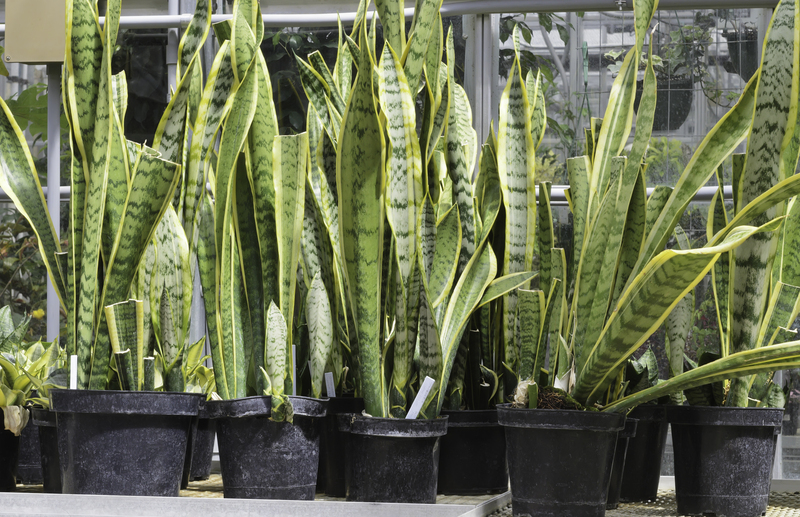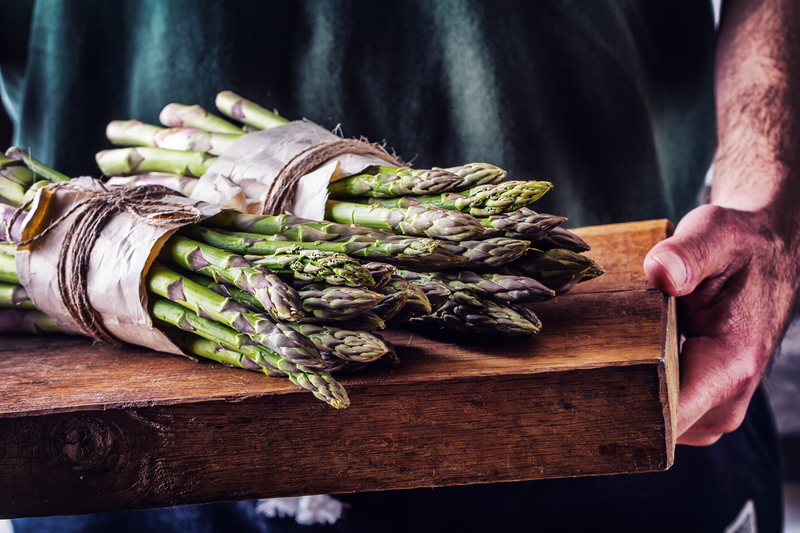Cultivate Your Skills with 9 Crucial Tips for New Gardeners
Posted on 18/06/2025
Gardening isn't just a hobby; it's a rewarding journey towards healthier living, serenity, and self-sufficiency. If you're a novice, cultivating your gardening skills opens a world of fresh produce, blossoming blooms, and personal satisfaction. However, starting out can be overwhelming. With so many tools, plant varieties, and techniques vying for your attention, where do you focus your energy?
This comprehensive guide provides 9 crucial tips for new gardeners--helping you avoid common pitfalls, nurture your green thumb, and master the art of gardening.
Why Cultivating Gardening Skills is Important for Beginners
Gardening is as much about patience and knowledge as it is about getting your hands dirty. As a beginner gardener, investing time in learning proper practices will:
- Boost your garden's productivity by understanding plant requirements.
- Reduce costly mistakes that can discourage new gardeners.
- Enhance your enjoyment as you see visible and sustainable progress.
- Foster a deeper connection to nature and your local ecosystem.

9 Essential Tips to Cultivate Your Gardening Skills
1. Start Small and Choose the Right Location
It's tempting to transform your entire yard into a paradise overnight. However, starting with a manageable area increases the chances of success. A small garden allows you to develop your gardening skills, learn from mistakes, and adjust approaches as necessary.
- Pick a spot that receives at least 6 hours of sunlight daily. Most vegetables, fruits, and flowers need full sun for optimal growth.
- Ensure the area is level and accessible so you can maintain it easily without straining.
- Observe your chosen spot during different times of the day for sun and shade patterns before planting.
Remember, quality over quantity. Mastering a small plot will cultivate your confidence and expertise.
2. Test and Prepare Your Soil
The secret to a thriving garden lies beneath your feet. Soil health is pivotal. Start by testing your soil's pH and nutrient levels, which you can do with a simple home kit or by sending a sample to your local cooperative extension.
- Most plants prefer a pH between 6.0 and 7.0. Amend acidic or alkaline soil as needed with lime or sulfur.
- Add organic matter like compost or well-rotted manure to improve structure, fertility, and moisture retention.
- Loosen compacted earth to ensure roots can penetrate and water doesn't pool.
Investing in your soil from the start nurtures plant health and reduces future work.
3. Select Beginner-Friendly Plants
One of the best gardening tips for novices is to choose plants known for their resilience and adaptability. Beginner-friendly plants forgive minor mistakes and offer bountiful rewards.
- For vegetables, try lettuce, radishes, beans, and zucchini.
- For herbs, basil, parsley, mint, and chives are low-maintenance.
- If you prefer flowers, sunflowers, marigolds, and zinnias are both cheerful and hardy.
Read plant tags and seed packets carefully. Take into account your climate zone, average temperatures, and growing season length. This attention to detail can make all the difference in your early gardening successes!
4. Learn Proper Planting Techniques
How you plant is just as important as what you plant. Uniform rows might look nice, but success depends on correct depth, spacing, and timing.
- Don't plant seeds too deeply, as this can prevent germination. A general rule is to plant seeds at a depth twice their width.
- Space plants appropriately to avoid overcrowding, which can lead to disease and poor air circulation.
- Follow local planting calendars to ensure you sow seeds and transplant seedlings at the right time for your region.
By mastering basic planting skills, you're building a strong foundation for your gardening journey.
5. Water Wisely and Efficiently
Overwatering is a common beginner mistake, as is neglecting to water consistently. Establish a watering routine suited to your plants and environment.
- Water deeply but less often. This encourages roots to grow down in search of moisture, strengthening the plant.
- Water early in the morning to minimize evaporation and fungal disease risk.
- Use mulch to retain soil moisture, suppress weeds, and regulate temperature.
- Stick your finger an inch into the soil: if it's dry, it's time to water!
Learning to observe your garden's cues helps you cultivate watering skills that promote resilience in your plants.
6. Practice Smart Pest and Disease Management
Not all insects are foes! An integrated approach to pest and disease control will keep your garden healthy while protecting beneficial wildlife.
- Inspect plants regularly for early signs of trouble--yellow leaves, spots, or holes.
- Promote biodiversity by planting a mix of flowers, vegetables, and herbs to attract pollinators and predators.
- Use physical barriers like row covers or crushed eggshells to deter pests.
- Resist the urge to use broad-spectrum chemicals; instead, opt for natural solutions or targeted organic treatments as needed.
With vigilance and smart management techniques, you can cultivate a balanced garden ecosystem.
7. Feed Your Garden Correctly
Plants need nutrients just like humans do. Fertilizing wisely is a skill that new gardeners should develop early on.
- Start with organic matter like compost, leaf mold, or worm castings, which enrich soil naturally.
- Understand the N-P-K ratio (Nitrogen-Phosphorus-Potassium) to match fertilizer to your plants' growth stage.
- Don't over-fertilize; too much can burn roots and encourage excessive foliage at the expense of fruit or flowers.
Cultivating your knowledge of plant nutrition will help you grow greener, healthier plants.
8. Practice Regular Maintenance and Pruning
A well-maintained garden is a thriving garden. Learning how to prune, deadhead, and stake can dramatically boost your success as a new gardener.
- Remove spent flowers and damaged leaves to encourage further blooming and healthier growth.
- Stake tall plants like tomatoes and sunflowers to prevent breakage in wind or rain.
- Weed consistently to stop unwanted competitors from stealing light, water, and nutrients.
- Sharpen and clean your garden tools regularly to prevent plant diseases and ease your workload.
Embracing these simple habits will help you cultivate your skills and create a garden that flourishes all season.
9. Document, Reflect, and Celebrate Your Progress
Success in gardening comes from observation, patience, and continuous learning.
- Keep a gardening journal: track what you plant, how it grows, and weather patterns.
- Take photos regularly to see your improvements and changes over time.
- Note what worked well and what you'd like to refine for next season.
- Share your bounty and stories with friends, family, or local gardening groups to inspire and learn from others.
Reflecting on your gardening journey boosts confidence and growth, turning every failure into a valuable lesson.
Bonus: Build Your Gardening Knowledge Through Community and Resources
You don't have to grow alone! Enhance your gardening skills by connecting with others:
- Join local gardening clubs or volunteer in community gardens for hands-on experience.
- Read books and trusted online sources to expand your knowledge.
- Take classes or attend workshops to learn from experts.
- Follow gardening forums and social media groups for peer advice and troubleshooting.
Networking widens your gardening toolbox and provides reliable support when challenges arise.

Common Gardening Mistakes New Gardeners Should Avoid
Even with the best gardening tips, beginners can stumble. Here are some pitfalls to watch for:
- Planting too early or late for your local climate zone.
- Overwatering or underwatering due to lack of observation.
- Neglecting regular weeding, pruning, and maintenance, which can invite diseases or pests.
- Choosing plants unsuited for your region or garden microclimate.
- Using poor quality soil or skipping soil preparation entirely.
Stay mindful, patient, and proactive to minimize these beginner errors.
Conclusion: Grow With Patience and Passion
With these 9 crucial tips and a willingness to keep learning, you'll cultivate your gardening skills and watch your efforts yield beauty, sustenance, and satisfaction.
Remember, every expert gardener started as a beginner. Embrace each challenge, celebrate each bloom, and continue to deepen your connection with nature. Your garden will thrive--and so will you!
Have your own tips or questions? Share your gardening journey in the comments or reach out to connect with fellow gardeners!
Latest Posts
Organic Waste: A Gateway to Fertile Earth
How Your Backyard Can Help Fight Climate Change
Why Container Gardening is Perfect for Beginners

